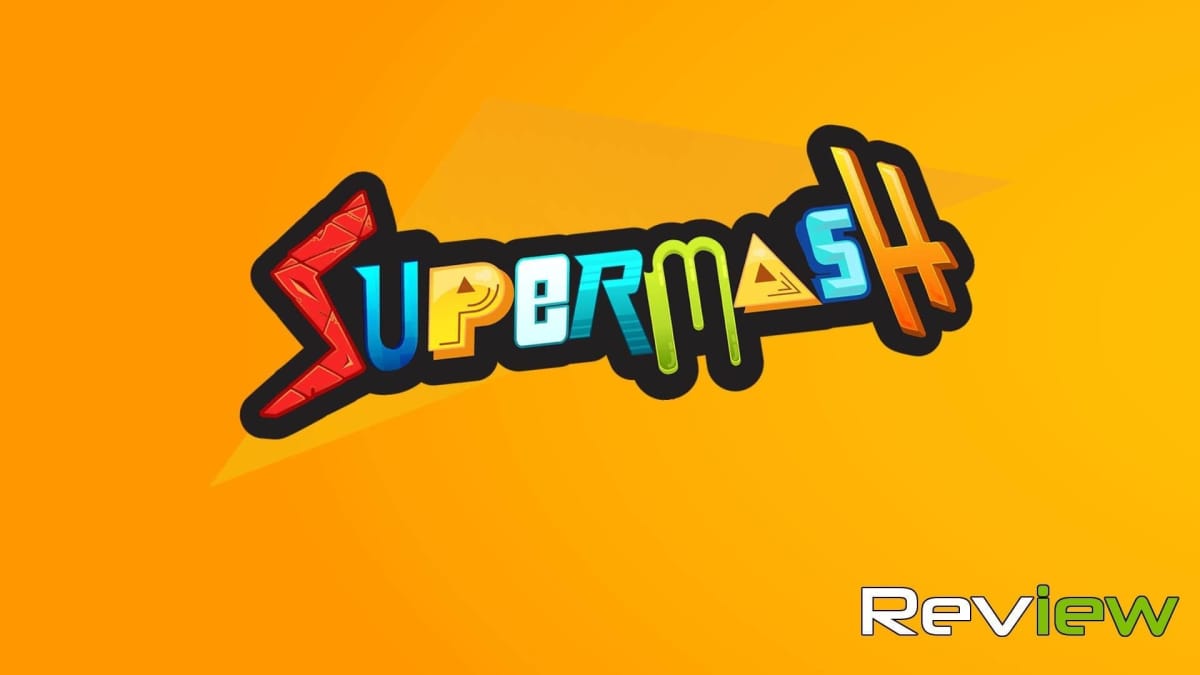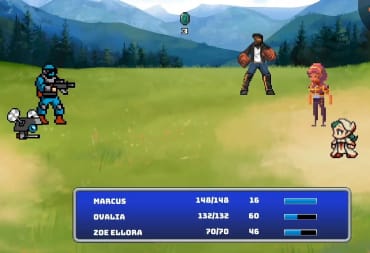Many of the games we play are hybrids of different genres. They’re open-world role-playing games with action elements, or first-person shooters with role-playing elements, or platformers with non-linear exploration. Mixing up genres and styles can result in experiences just as fun as pure genre releases.
Digital Continue’s SuperMash takes that idea and builds a metagame around it. By combining six distinct game genres, you can make dozens of “mashes.” Want to toss a JRPG together with a Shoot ‘Em Up? Or mix Stealth with Metrovania (as the "Metroidvania" genre is called in this game)? SuperMash supposedly gives you those chances. But don’t get too eager to grab this title and start mashing – whatever potential SuperMash’s concept had, the execution fails to deliver. This is a mess of a game: weak, uninspiring, and disjointed.
You play as Tomo who, with his sister Jume and friend Rob, must manage a game store that’s come on some rough times. Facing eviction, the trio has to relocate – but only after securing the necessary funds for a deposit. This is just the start of their troubles. A strange kind of game machine saves the day, though: the Play Type Game Machine. This little contraption can take two different games and mash them together. These revolutionary mashes are an exciting prospect for a way to attract new customers.
As Tomo, you build and test out genre mashes. From an in-game menu, you choose two genres to mash together and, after setting a few customization options, dive in. This is the core gameplay experience for the entire 8-10 hour duration.
Shallow Genre Conceptions
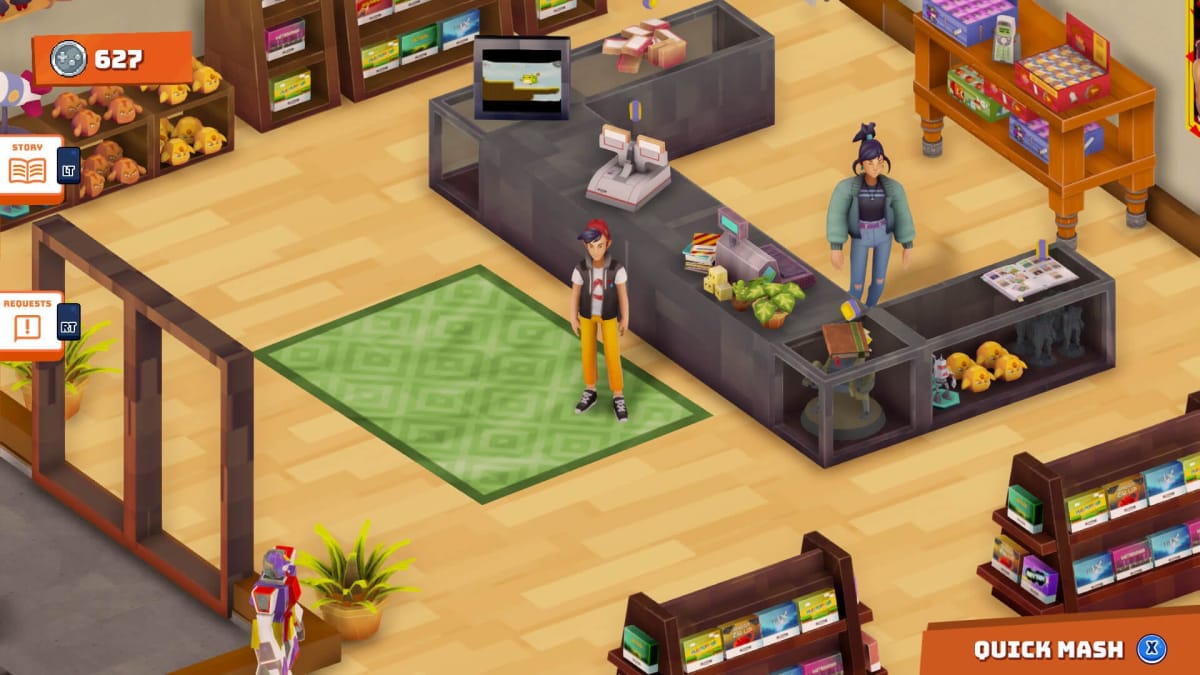
SuperMash fails because these mashes are uninspiring and unengaging. One major issue is that the developer’s idea of a given genre is based on aesthetics more than mechanics. Mash in the Stealth genre and there will be Metal Gear aesthetics; mash in the Action-Adventure genre and it’s Zelda; mash in JRPG and it’s Final Fantasy. It’s not that including elements of these games is wrong – you can’t blame someone for using Final Fantasy aesthetics to represent JRPGs. However, every mash experience comes off as a mixture of specific series rather than of specific genres. Stealth doesn’t have to be Metal Gear, nor does JRPG have to be Final Fantasy, but in SuperMash, that’s all those genres are.
For example: in a Platformer-Stealth mashup – a mixture that very well could be interesting – you are simply playing a Platformer game with the Stealth characters in it. In other words, it feels like a Super Mario Bros. game with Metal Gear characters slapped in rather than a riveting hybrid game experience with Platformer and Stealth elements. One absurd mashup resulted when I threw Shoot ‘Em Up and Stealth together. I proceeded to control the aircraft unit from the Shoot ‘Em Up genre within the Metal Gear-inspired setting of the Stealth genre. A deeper exploration of what a Shoot ‘Em Up and Stealth hybrid could be like – for example, a game where you play as a stealth bomber – would have been more interesting than this cosmetic crossover.
Nothing But Timed Minigames With Glitches
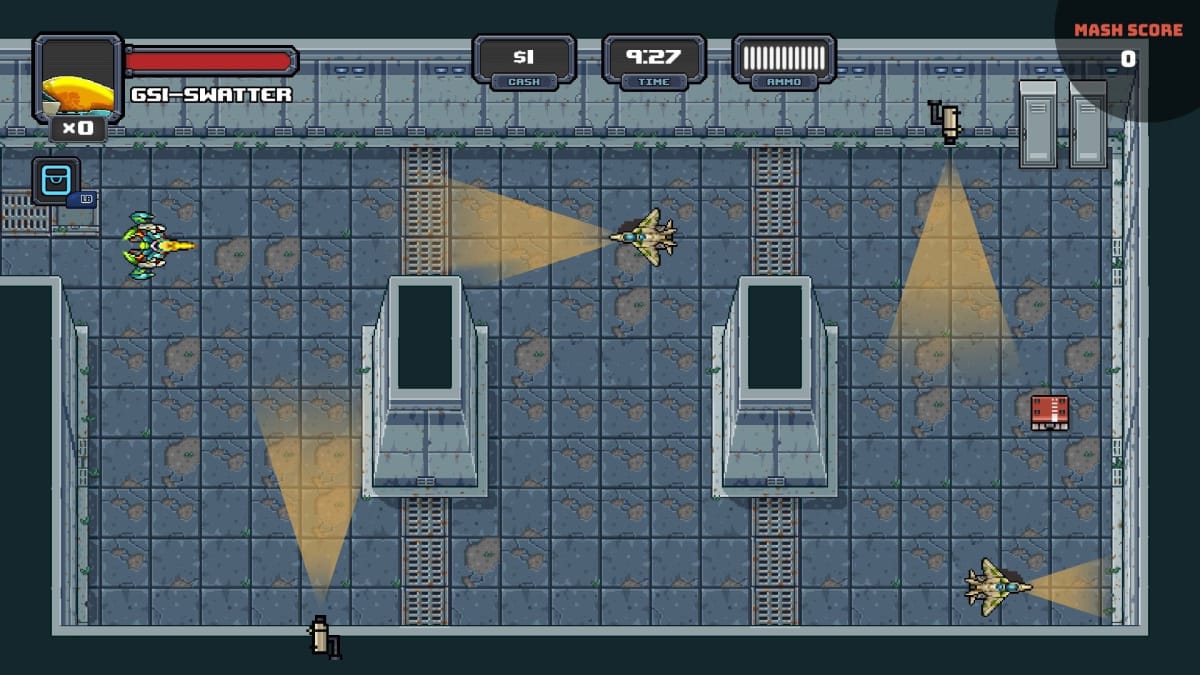
A proxy issue to this is that any given mash boils down to a timed mini-game. You’ll be given an objective at the outset like “Collect enough money to impress your friends in 10 minutes” or “Rescue Garrett from his apathy in under 5 minutes” or “Defeat 5 Rios” (a type of enemy). You are constantly completing little tasks like these, and whether they are done under the auspices of a Platformer-Stealth mash or a JRPG-Metrovania mash, it feels essentially the same.
You never really feel like you’re playing different genres. Everything is a variant of the same feeling. In Stealth games you can quite easily shoot down each enemy without much consequence, for example. What characters or setting each mash uses can vary, and you can select dev cards you unlock before each mash to customize the experience further. No matter the makeup of a mash, though, they are each essentially similar timed minigames.
Another issue with the mashes you’ll be playing are intentional glitches. These were likely added to spice up the experience, but they only make it more annoying. Throughout my experience, at moments when I thought I might be getting into a given mash and having some fun, one of these designed glitches would occur and ruin it.
One glitch is forced rightward movement. Another is a depleting health bar. One causes the screen to become darker. These each trigger via some event: one of them tilts the screen more to the left each time you are damaged by an enemy, which caused me to exit due to motion sickness. Another causes the screen to “break” and the “Glitch Ghost” (a giant skull) to come out and chase your character around. The breaking-screen graphic is obtrusive, blocking the view of the game world to such a degree that you can hardly play when this glitch is active. These glitches are chosen at the start of a mash, and you can select a glitch yourself if you have a dev card for it. Some even help you, but no matter they were a burden for the whole playthrough.
Actual Glitches and Poor Communication
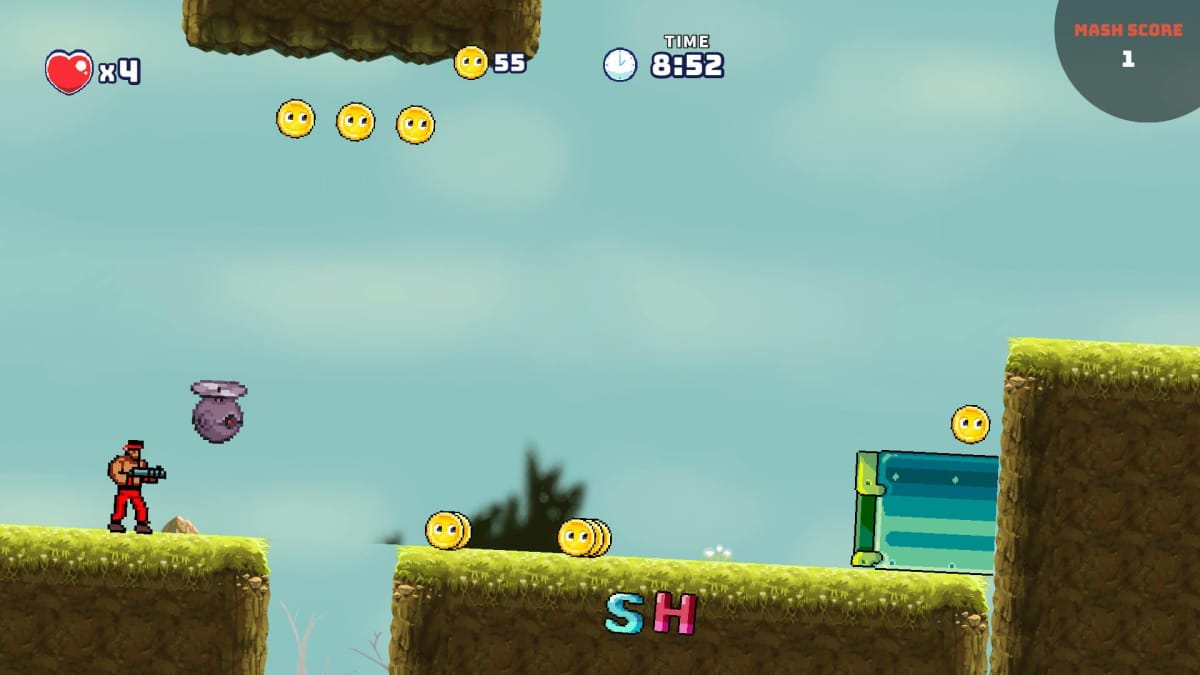
What’s more annoying are the actual glitches that plague the game. Once after restarting an Action-Adventure mash (you can mix a genre with itself) the “Loading…” phrase remained on the screen, and I had to exit the mash for it to disappear. In a Platformer mash, my character once became frozen at a certain plane in the air. In a Metrovania mash, my character was invisible once upon respawning (and not because of a power-up). There’s enough of these blemishes to make the game feel rough.
SuperMash does not do a good job communicating with the player, either. Within the mashes, I often did not know what an item I picked up would do. Leaving tasks or item-usage up to the player to figure out is fine, but in this game, the lack of even the simplest descriptions of what items do and how you use them is an issue. For example, I would come upon something that looks like a blue fire extinguisher. I would pick it up, and it would go into my inventory. Great! Now what? The main problem here is that some items do not have a button prompt. You also cannot see the controls from within a mash. Thus, I wonder, “Is there a button I should press to use this fire extinguisher?”, but I have no way of knowing.
When I first encountered one of these items, I had not seen fire before in the level. Once I spotted fire blocking my path, I had to trust that the extinguisher would activate once I approached the fire – thankfully, it did. Until that moment I did not know this item’s name, description, or use. Being able to view a control screen from within a mash would do wonders. As is, you can only refer to this from the game-store scene when you are not in a mash. Thus, you are forced to play a guessing game with key items.
In The Store
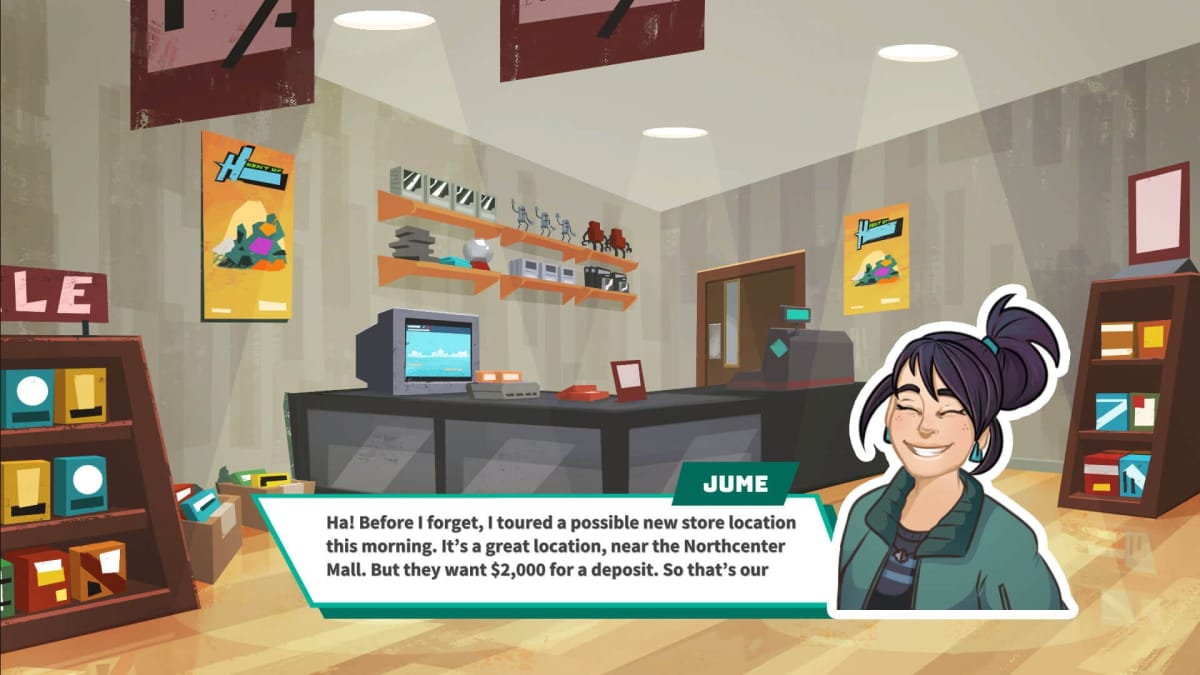
Between playing the genres you mix up, you control Tomo within the game store. There are stations you can walk up to, like the Super Type game machine or a collection of the mashes you’ve saved. Tomo walks with quite a lot of style. In fact, it’s absurd how much swagger he has as you control him through the store. Whether a positive or a negative, it's certainly notable and somewhat amusing.
You pick up the main story quests by talking with Jume. These are tasks like “Make 5 Platformer Mashes.” You can also pick up sidequests from customers milling about the store. These might be “I’d like a Short, Easy mash” (you can edit difficulty and length when creating mashes). But whether completing the main quest or a side quest, every step of the game is the same: you’re making and playing new mashes ad nauseam.
The store’s in trouble and you need more money? Play some mashes. Need to make sure you don’t run out of titles to sell? Play some mashes. Tomo needs to develop a new walk-style? Get mashing. No matter what development the story takes, the respective gameplay segment is always playing more mashes. And, as explored, the mashes get old fast.
One positive is that the art and dialogue in the cutscenes between main-story quest segments are solid. I wanted to like the characters more, and I likely would have were the core of the game more interesting. Another positive is quick load times: I was impressed with how quickly I could launch and get going in the game. But as is, whatever positives SuperMash may have, they’re wasted next to the shallow, unengaging nature of the mashes.
SuperMash Review | Final Thoughts
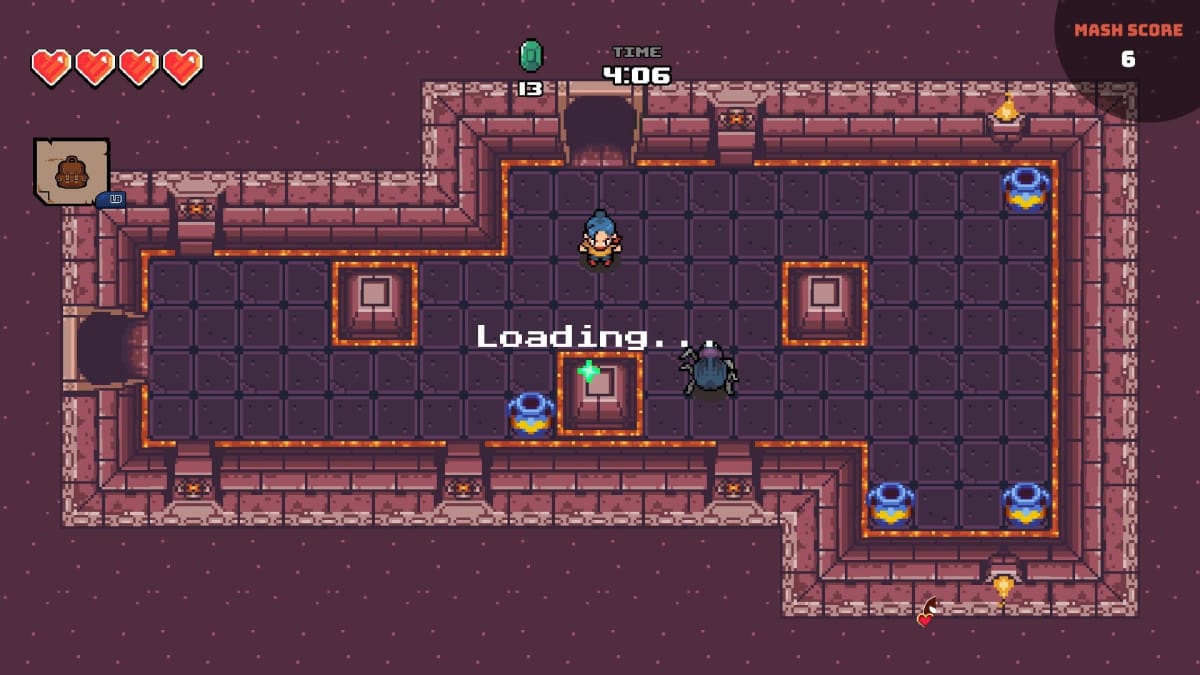
SuperMash is essentially an uninteresting and rough minigame collection. Given how intriguing the premise could be, this is quite a disappointment – but to craft a game where you can mix and match several different genres is quite an undertaking. Here, the undertaking has failed. This is a mashed-up experience with more annoyance than engagement.
TechRaptor covered SuperMash on PC via the Epic Games Store using a code provided by the developer.
Review Summary
Pros
- Character Art And Dialogue In Cutscenes
- Fast Load Times
Cons
- Superficial Conceptions Of Game Genres
- Annoying Glitches Added By Design
- Annoying "Real" Glitches
- Poor Communication To Player Within Mashes
Have a tip, or want to point out something we missed? Leave a Comment or e-mail us at tips@techraptor.net
